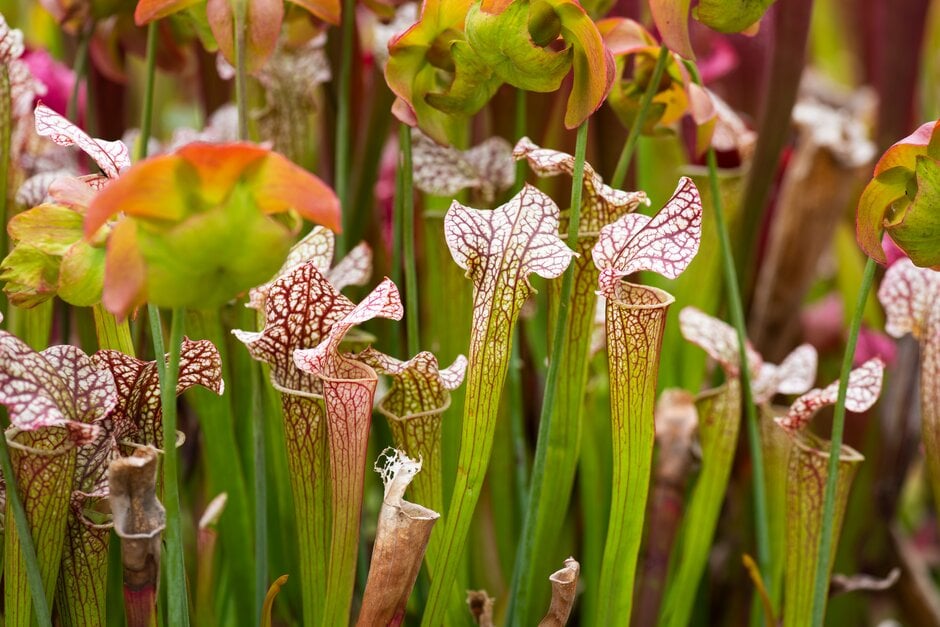Sarracenia 'Colin Clayton'
pitcher plant 'Colin Clayton'
A carniverous perennial with young pitchers that are yellowish-green with purplish-red veining and wavy-edged, white-flecked hoods. As the pitchers mature, the upper part of the tube turns apricot-orange. Downward-facing flowers are a greyish-red with greenish-yellow tinges

Size
Ultimate height
0.1–0.5 metresTime to ultimate height
2–5 yearsUltimate spread
0.1–0.5 metresGrowing conditions
Moisture
Moist but well–drained, Poorly–drainedpH
Acid, NeutralColour & scent
| Stem | Flower | Foliage | Fruit | |
| Spring | Red White | Variegated Green Red White | ||
|---|---|---|---|---|
| Summer | Red White | Variegated Green Red White | ||
| Autumn | Variegated Green Red White | |||
| Winter | Variegated Green Red White |
Position
- Full sun
Aspect
South–facing or West–facing
Exposure
Sheltered Hardiness
H3Botanical details
- Family
- Sarraceniaceae
- Native to GB / Ireland
- No
- Foliage
- Evergreen
- Habit
- Clump forming, Columnar upright, Matforming
- Genus
Sarracenia can be evergreen or herbaceous, rhizomatous perennials with rosettes of phyllodes mostly modified into insect-catching tubular pitchers with hooded lids, and solitary, nodding cup-shaped flowers in spring
- Name status
Accepted
How to grow
Cultivation
Grow under glass, keep moist in full light with shelter from hot sun. Use an acidic potting medium with moss. In winter, keep slightly drier, cool and well ventilated. Irrigate with lime-free water. They will generally lose some of their leaves over winter during a period of dormancy. Most Sarracenias can be grown outside in milder parts of the country, but care should be taken in colder conditions. Choose a position in full sun, sheltered from cold winds. See carnivorous plant cultivation
Propagation
Propagate by division
Suggested planting locations and garden types
- Patio and container plants
- Conservatory and greenhouse
Pruning
No pruning required. Remove dead leaves as necessary
Pests
May be susceptible to scale insects, mealybugs, aphids and tortrix moth caterpillars
Diseases
Generally disease-free
Get involved
The RHS is the UK’s gardening charity, helping people and plants to grow - nurturing a healthier, happier world, one person and one plant at a time.